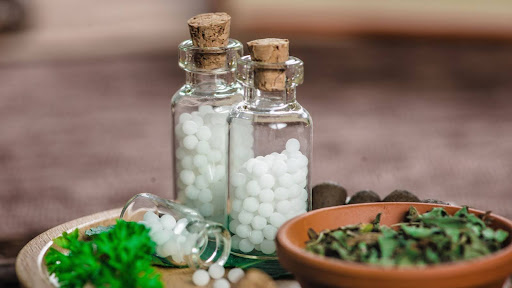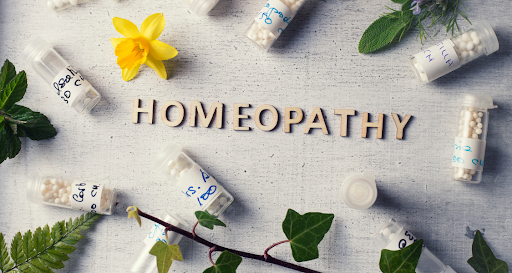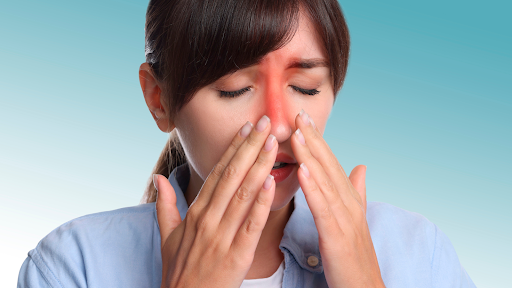Monsoon Reset for Women: How Homeopathy and Nutrition Create Resilience in Sawan
The monsoon season brings much needed relief from summer’s intense heat. However, for many women, especially in India, the rainy season triggers a range of health issues - hormonal imbalances, low immunity, digestive troubles and skin infections. This makes Sawan (monsoon) an ideal time for a gentle but powerful body reset.
In this blog, we’ll explore how homeopathy and nutrition using local, affordable foods can help you stay healthy, balanced and energized throughout the monsoon.

Why Monsoon Requires a Reset for Women
The monsoon season is marked by high humidity, unpredictable temperatures, waterborne diseases, and a natural slowing down of the digestive system. These factors contribute to several issues that commonly affect women:- Hormonal Fluctuations: Stress and disrupted routines may worsen PMS, thyroid issues or menopausal symptoms.
- PCOS Worsening: Bloating, weight gain, irregular periods, and acne often flare up
- Skin Issues: Fungal infections, pimples, and oily skin are common.
- Digestive issues: Gas, acidity and indigestion increase
- Mood Swings & Fatigue: Gloomy weather can affect serotonin levels, making you feel low or lethargic Women who are menstruating, managing hormonal conditions like thyroid disorders, or going through menopause are particularly vulnerable during this time.
How Homeopathy Helps During Monsoon
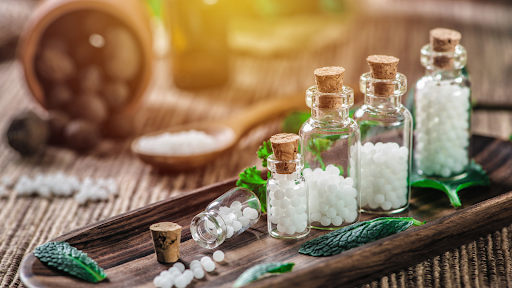 Homeopathy gently stimulates your body’s natural healing ability, making it ideal for seasonal changes like monsoon.
Homeopathy gently stimulates your body’s natural healing ability, making it ideal for seasonal changes like monsoon.Key Benefits of Homeopathy in Monsoon
- Balances Hormones: Remedies like Sepia, Pulsatilla, and Lachesis can regulate menstrual cycles and improve mood.
- Boosts Immunity: Arsenicum Album, Echinacea, and Sulphur are commonly used to prevent infections.
- Improves Digestion: Nux Vomica, Lycopodium, and Carbo Veg help ease indigestion and bloating.
- Treats Skin Ailments: Graphites, Thuja, and Calendula are effective for fungal infections and oily skin.
- Manages Allergies and Colds: Allium Cepa and Bryonia are great for seasonal allergies, sneezing, and congestion.
If you're considering a homeopathic reset this monsoon, it is best to consult an experienced practitioner. Dr. Priyanka Mangla Aggarwal is a seasoned homeopathic doctor on DocGenie, known for her evidence-based and personalized approach, especially in women's health and seasonal wellness
Nutritional Reset During Sawan: What to Eat and Why
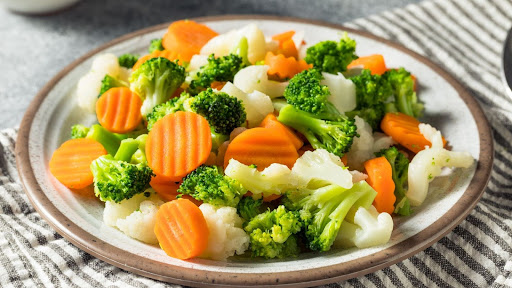 Food is truly medicine especially during the monsoon, when the right nutrition can help your body adapt to seasonal changes. Guided by experienced dieticians, small dietary shifts can boost your immunity, balance hormones, and improve overall well-being.
Food is truly medicine especially during the monsoon, when the right nutrition can help your body adapt to seasonal changes. Guided by experienced dieticians, small dietary shifts can boost your immunity, balance hormones, and improve overall well-being.Best Foods to Eat in Rainy Season in India
- Steamed or Cooked Vegetables Avoid raw salads during the rainy season as they may carry bacteria. Lightly cooked veggies like lauki (bottle gourd), tinda (apple gourd), bhindi (ladyfinger), and torai (ridge gourd) are easy to digest and rich in water and fibre.
- Methi and Haldi (Fenugreek and Turmeric) Add these to your daily cooking. Both have anti-inflammatory properties and improve digestion and immunity.
- Seasonal Fruits Like Jamun, Pear, and Pomegranate These fruits are hydrating and rich in antioxidants, fibre, and vitamins, which help with skin glow, blood purification, and hormonal balance.
- Buttermilk and Homemade Curd (in moderation) These are natural probiotics that aid digestion and reduce bloating. Avoid them late at night or when it’s too humid.
- Ginger and Tulsi Tea Start your morning with these infusions to strengthen your immune system, prevent colds, and boost energy.
- Moong Dal Khichdi with Ghee A perfect monsoon meal that’s light, easy to digest, and balances all three doshas (Vata, Pitta, Kapha).
- Hydration With Herbs Drink lukewarm water infused with jeera (cumin), ajwain (carom seeds), or dhania (coriander seeds). This reduces water retention and improves digestion.
- Use Ghee in ModerationGhee lubricates joints, supports skin, and aids in hormone synthesis. One teaspoon daily in hot meals is sufficient.
Foods to avoid during monsoon
- Heavy, Oily, and Fried Foods : These can trigger acne, bloating, and sluggishness. Replace fried pakoras with roasted snacks like makhana or boiled corn with lemon.
- Too much Dairy or Curd at night : It may aggravate sinus or digestion issue
- Leafy Greens from streetVendors :They are prone to worms and contamination. If consuming, wash thoroughly in salt and turmeric water.
This blog will help you:Importance of a Balanced Diet
Lifestyle and Self-Care Tips for Women in Monsoon
- Sleep on Time Hormonal rhythms sync with your circadian clock. Going to bed between 9:30-10:30 PM and waking early helps regulate cortisol and insulin levels.
- Walk After Meals A short 10-minute walk postlunch or dinner improves digestion and prevents post-meal lethargy.
- Avoid Sitting for Long HoursMove every hour - especially if working from home. It helps reduce bloating and stiffness.
- Practice Deep Breathing and MeditationJust 10 minutes of alternate nostril breathing can calm the nervous system and help reduce PMS, anxiety, and cravings.
- Keep Feet Dry and Clean Fungal infections start in damp areas. Dry feet properly and use antifungal powder if needed. Change socks daily and avoid closed shoes for long hours.
- Choose Breathable Cotton Clothes These help prevent skin infections, reduce sweating, and keep you comfortable during the humid weather.
- Oil Massage Once a Week Abhyanga (self-oil massage) with warm sesame or coconut oil reduces stress, improves circulation, and supports hormonal balance.
- Menstrual Hygiene is Crucial Due to moisture and warmth, the risk of infections increases. Use clean pads or menstrual cups, change regularly, and maintain intimate hygiene.
- Mental Health Check-ins Many women feel low during gloomy weather. Light stretching, journaling, or talking to a trusted friend can uplift your mood.
- Declutter Your RoutineChoose 2–3 priorities per day. Reducing multitasking supports hormone balance.
Explore this blog to learn more: Top Healthy Lifestyle Tips for Better Living
Monsoon and PCOS: A Special Note
For women with PCOS, monsoon can be a particularly difficult time. The sluggish digestion, increased inflammation, and sugar cravings can worsen symptoms.What helps:
- Focus on high-fibre meals, less sugar and avoid refined carbs
- Limit caffeine and dairy if acne flares up
- Practice yoga or light movement every day
- Consult a homeopath for remedies like Sepia and Natrum Mur
Dr. Priyanka Mangla Aggarwal on DocGenie has worked with many women struggling with PCOS and seasonal flare-ups. Her integrative approach combining homeopathy with food and lifestyle changes provides lasting results.
